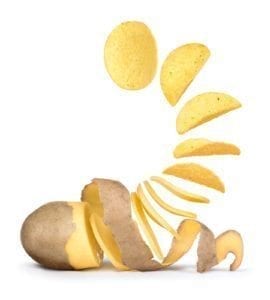
Procter & Gamble does not want to pay taxes! Court battle over whether Pringles is considered a potato chip.
Pringles and Taxes
Have you ever stopped to think about Pringles? They are a snack food, obviously, but what are they really? If you are like most people, you would think that they are a potato chip. After all, you pick them up in the grocery store in the same aisle as the rest of the chips. However, this was a very serious question that the Supreme Court of Britain had to answer. They concluded that legally, it is a potato chip, even though Procter & Gamble UK, who make the Pringles, would like it to be otherwise. Why wouldn’t they want their snack to be called a potato chip? The answer is simple, and as with most things in life, it has to do with money.
The Potato Chip Tax
In England, most foods are exempt from the VAT (value added tax). However, potato chips, or crisps, as they are called, along with “similar products made from the potato, or from potato flour”, are taxable. If they are potato chips, then that means they are taxable, which is not in the best interest of Procter & Gamble. They say that their product only has 40% potato flour, and that it contains wheat, rice, and corn. Therefore, it should not qualify as a potato chip, and it shouldn’t be considered a similar product, even though they do seem to look and taste quite a bit like chips to most people. They believe that their products should be called savory snacks instead.
The VAT and Duties Tribunal did not agree with their savory snack argument, and they say that in the United States, Pringles have been marketed as potato chips. There was actually quite a bit of confusion before this latest ruling, and there have been appeals, and overturns to previous rulings. For a short time, they decided that the Pringles would be exempt from taxes, but the Supreme Court of Judicature reversed that decision and said that the question was “not one calling for or justifying overelaborate, almost mind-numbing legal analysis.” They took a simpler and practical approach when making their decision, coming down to a matter of impression rather than weighing and measuring all of the ingredients. Essentially, if it looks and tastes like a potato chip, then that’s what it is.
What Does This Decision Mean for Procter & Gamble?
With the court deciding that Pringles really are potato chips, it means that the company has a substantial amount of taxes that they will have to pay. In fact, they now owe $160 million in taxes. Naturally, they are not very happy with the decision. What this means going forward for other companies that might have snack foods that they believe fall into some mystery category is unknown, but if there is a substantial amount of money at stake, as there was with this case, you can be sure that it will probably pop up in a courtroom at one time or another, even though they are not generally the types of cases you might imagine in court.
